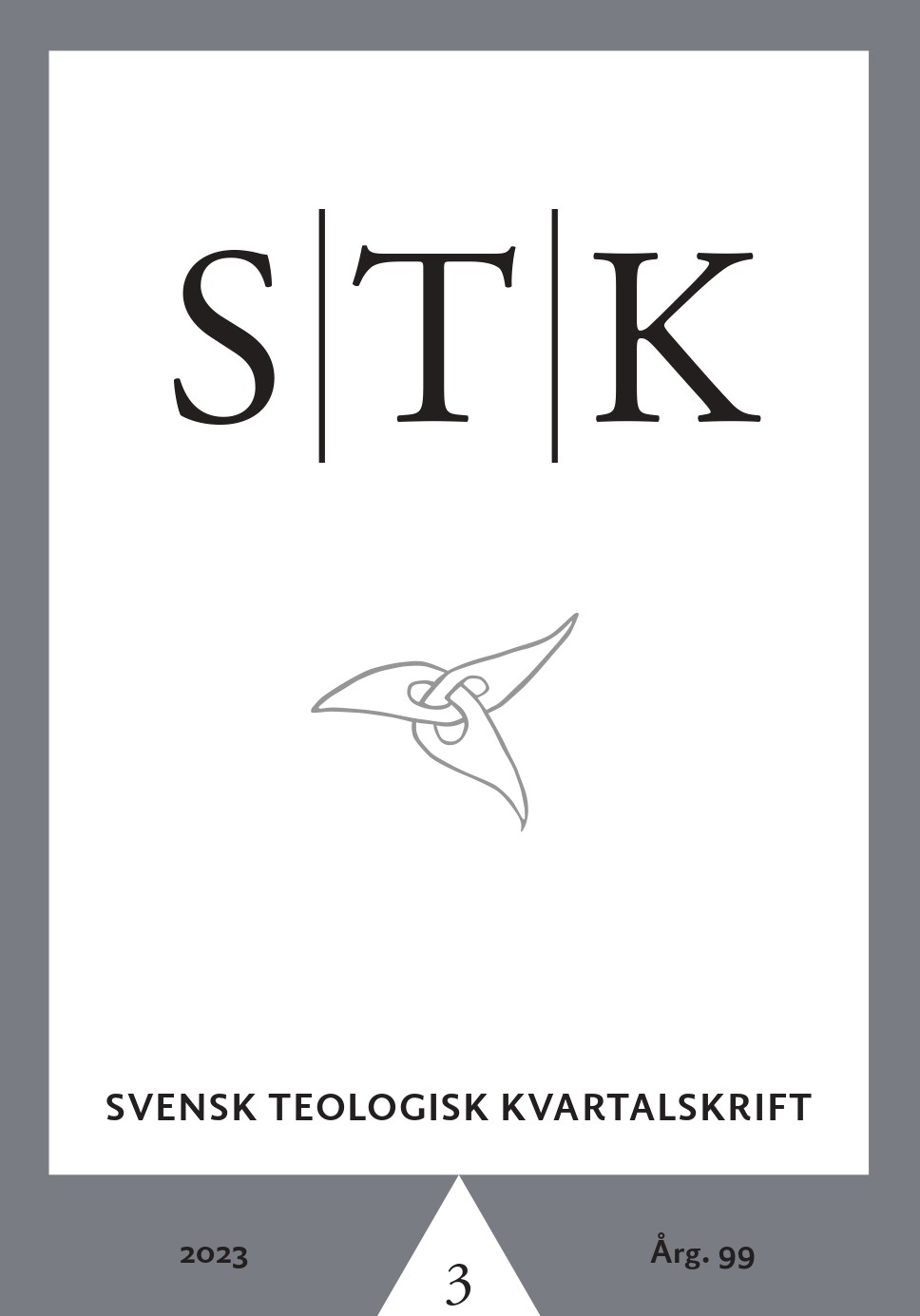Att möta vilddjuren i egna kläder
Kultur, status och värdighet på arenan i Karthago
DOI:
https://doi.org/10.51619/stk.v99i3.25382Abstract
This study analyzes the early third-century Passion of Perpetua and Felicitas using Kathryn Tanner's theoretical model of cultures as sets of behavioural patterns, continuously upheld by consensus efforts guiding children, newcomers, and rebels towards expected norms and ideals. In early Christian stories such as this one, we may observe how the narrative characters choose between specifically Christian behavioural patterns and patterns that are available in Greco-Roman society more generally. Observations of the narrative's plot, characterizations, and attitudes towards narrated behaviour may inform us of the values of the implied author. Despite the sharp contrast depicted between the defenseless Christian martyrs and the brutal Roman society intent on killing them, the implied author turns out to share many values with Greco-Roman culture. Perpetua's ability to receive and explain prophetic dreams and her calm and rational attitude towards her own execution are ideals that are as valid in a Greco-Roman context as in a Jewish-Christian one. Two values are found to distinguish the Passion from Greco-Roman culture: the norm not to sacrifice to the Greco-Roman gods that constitutes the given plot of an early Christian martyrdom story and the principle of inherent human dignity, extended even to slaves and convicts.
Downloads
Publicerad
Nummer
Sektion
Licens
Copyright (c) 2023 Carl Johan Berglund

Detta verk är licensierat under en Creative Commons Erkännande-Ickekommersiell-IngaBearbetningar 4.0 Internationell-licens.


